With all the health and safety concerns surrounding commercial pet food, it’s no wonder many pawrents introduce real meat and bones into their dogs’ diets.
Animal bones are a delicious treat and an excellent way for dogs to satisfy their desire to chew. However, they are not without risks. Read on to find out the do’s and don’t’s of giving your dog bones.

Do: Choose high-quality raw bones.
No matter your feelings on raw food diets, if you are going to offer your dog bones, raw is the only way to go. In general, raw bones are safer than cooked because they are less likely to splinter. When choosing the perfect raw bone for your dog, follow these guidelines:
- Purchase bones from a skilled, reputable butcher to ensure freshness
- Opt for locally-sourced meat bones when possible
- Choose beef or bison bones; they tend to be safe and less likely to splinter
- Avoid pork bones and rib bones of any kind; they may crack or splinter
- To prevent choking, choose dog bones about the size of your pup’s head
- Store fresh bones in the freezer until ready for use
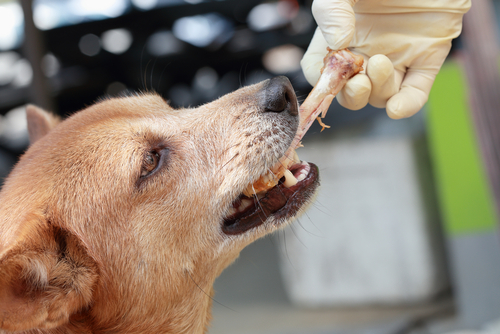
Don’t: Feed cooked bones.
Even though you know raw bones are safer, an occasional cooked beef bone couldn’t hurt…right? Unfortunately, even heartier bones from cows and bison may still splinter into sharp pieces when cooked. These fragments can cause serious health problems including:
- Wounds to the soft parts of the mouth and throat
- Fractured teeth
- Choking
- Perforations of the intestines
If you are concerned about raw feeding or want to utilize your leftover cooked bones, consider boiling them into a delicious, nutritious bone broth instead.
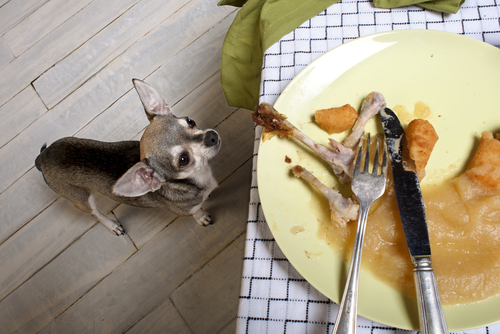
Do: Monitor dogs when they chew.
If you will be giving your dog bones, be sure you take the time to supervise the chewing. Some people opt to grind bones and add them to their dogs’ food to improve safety. Chicken necks are especially soft and excellent for grinding.
Dogs displaying signs of food aggression should not be given real bones. Highly desirable treats tend to trigger this behavior and make it difficult for you to retrieve them should they become a choking hazard.
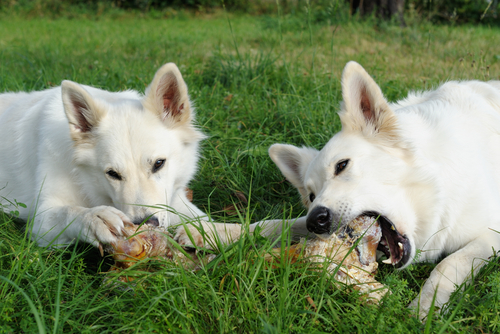
Don’t: Settle for commercially available packaged bones.
The U.S. Food and Drug Administration (FDA) reports that between Nov. 1, 2010 and Sept. 12, 2017, 90 dogs became sick after eating commercially-available smoked or baked bone treats. Fifteen of these dogs tragically lost their lives.
The ill and injured dogs suffered from symptoms such as gastrointestinal blockages, choking, vomiting, diarrhea, bloody stool, and cuts to the mouth.
Some of the bone treats listed in the reports were described as “Ham Bones,” “Pork Femur Bones,” “Rib Bones,” and “Smokey Knuckle Bones.” These products are baked or dried through a smoking process and may contain preservatives, seasonings or smoke flavorings.
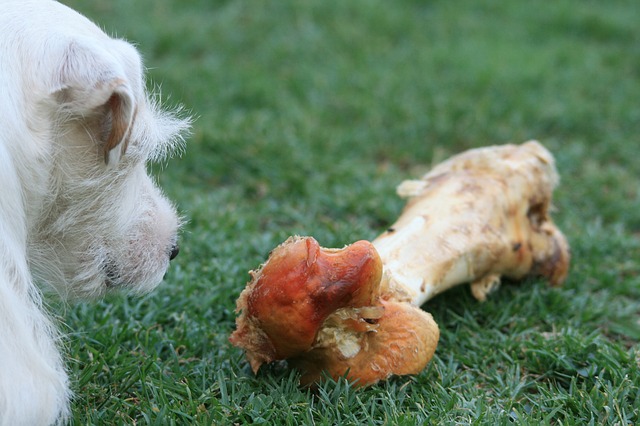
Do: Consider offering bone alternatives.
Dog bones are not the only way to satisfy your pup’s desire to chew. There are several toys, treats and chews to help keep their teeth clean, their minds occupied, and their bodies exercised.
Do: Weigh the pros and cons when deciding whether to give your dog bones.
When ground, raw bones offer a wonderful source of calcium and phosphorus. Whole bones also offer some nutrition when chewed from the meat, cartilage, fat, and connective tissue left clinging to them. Despite these benefits, raw bones can also expose your dog and your family to dangerous food-borne pathogens like Salmonella.
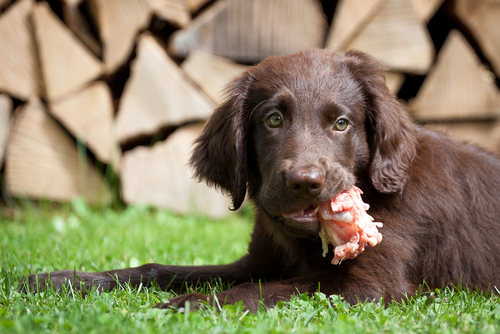
Before introducing raw bones into your dog’s diet, consult with your veterinarian to help you decide whether the benefits outweigh the risks.
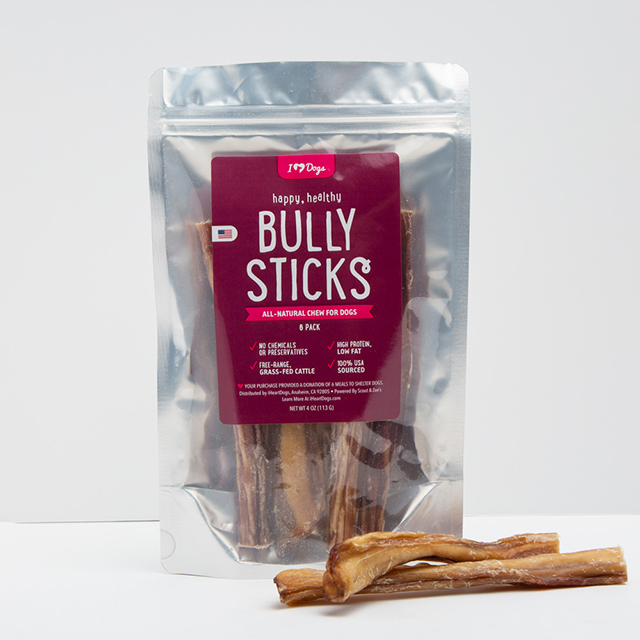
 Toledo, United States.
Toledo, United States.